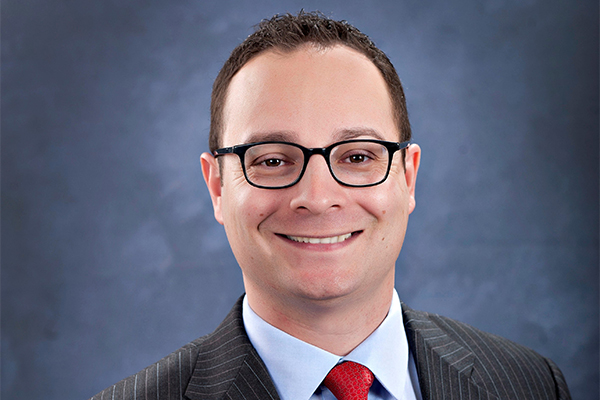This page is a continuation of an article on federal sentencing guidelines for obscenity convictions. If you have not already read the first page of this article, please do so first, otherwise the information on this page won’t make much sense..This page is a continuation of an article on federal sentencing guidelines for obscenity convictions. If you have not already read the first page of this article, please do so first, otherwise the information on this page won’t make much sense.
F. Fourth scenario – One or more of the images or films involved a person under the age of 18, but over 16.
If created by the Company, a separate offense can be charged for EACH minor (2G2.1). The level is 27 (70-87 months) for producing the image. Two different minors increase it to 29 (87-108 months). And three to 30 (97-121 months). There could also be enhancements for leader/organizer and for “use of a computer.” This could be another 6 levels altogether. It should also be noted that if the offense is charged not as obscenity, but for the production of the material, a minimum mandatory sentence of 15 years may apply.
Whether created by the Company or not, the government could argue under 2G2.2 to use the base level of 17 in place of the base level of 10 above, thereby increasing all of the above by 7 levels. The difference would be, in C(1) above, it would go from 21 to 28 (78-97 months). In D(2) above, it would increase from 28 to 37 (210-262 months).
The above illustrates a few salient points:
The Sentencing Guidelines create an incentive for pleading guilty before trial. While all United States citizens have a right to go to trial when charged with a criminal offense, that decision is accompanied by some substantial costs if the defendant is ultimately found guilty. Under the USSG, an individual who accepts responsibility for his or her actions and tenders a guilty plea to one or more of the offenses charged will normally receive a three-point reduction in sentence, which usually shaves off many months in prison. Additionally, the prosecutors may take less aggressive positions on enhancement issues. Thus, each adult Webmaster charged with obscenity will at some point be faced with the critical decision of whether to accept responsibility and plead guilty, or roll the dice with a trial and hope for the best with the people who chose to show up for jury duty that day.
The credit for acceptance of responsibility is one of the primary reasons why most indicted defendants in the federal system plead guilty instead of going to trial. Although it should be noted that pleading guilty alone may not be sufficient for acceptance of responsibility. The government has been known to threaten to object to the reduction where the individual does not agree with the government=s view of the facts.
In addition, the government will likely provide significant motivation for the defendants to enter a plea of guilty to some offense, by charging numerous additional offenses, or threatening to add additional charges, if the defendant refuses to plead guilty. Potentially, an adult Webmaster maybe facing charges relating to Section 2257 violations, credit card fraud, racketeering, money laundering, mail fraud or wire fraud, in addition to the standard obscenity charges. Alternatively, or in addition, the defendant may be looking at defending charges in multiple jurisdictions throughout the United States based on the same Website material, in the event that the government decides to bring charges in more than one jurisdiction – a common tactic in the past, although somewhat curtailed by previous federal court rulings.6 Sometimes the government will be inclined to dismiss or drop one or more of these additional charges in an effort to persuade the defendant to plead guilty to the offense that the government is most concerned about. This can sometimes be difficult when charges are brought in several different jurisdictions, with each jurisdiction desiring its own “pound of flesh.”
Your cooperation is greatly appreciated. The government likes cooperative defendants. It makes the job much easier. U.S. Attorneys have a life too, and they appreciate anything that makes their prosecution easier, less time consuming, and more effective. This all raises the issue of “substantial assistance.” The U.S. Attorney is empowered with the ability to ask the court for a reduction in the sentence either before sentencing, pursuant to U.S.S.G 5K1.1, or after sentencing pursuant to Fed. R. Crim. Proc. 32. Defendants often rack their brains in the attempt to come up with useful information for the government to be utilized in future prosecutions or investigations. This information is “proffered” to the prosecutor in an effort to convince him or her that the cooperation and information is useful, and should provide the basis for a sentence reduction under the Sentencing Guidelines. Most U.S. Attorneys offices have a limit of three levels decrease on such a motion, although once filed, the judge is not bound by their recommendation. While there is no guarantee that such information or assistance will result in any sentence reduction, most defendants who are looking at many months in prison will be all too willing to provide whatever information they can, if that information will shave a few months off of their already unfathomable sentence. Despite the tough talk in the industry about never cooperating with the feds or turning state’s evidence, this will be an all too common scenario once the prosecutions begin in earnest and the reality of federal sentencing hits home.
Money changes everything. Most adult Webmasters are in this business to make a living. They seek to generate as much revenue as possible under their current business plan. However, with the sentencing guidelines, the more money you gross the more severe the sentence. The potential sentence is enhanced based on “pecuniary gain.” U.S.S.G. 2G3.1(b)(1)(A). Those Webmasters found guilty who make an inordinate amount of money will spend more time behind bars under the Sentencing Guidelines. While this is not a reason to intentionally decrease your revenue, it is important to note that the more successful a defendant is, the greater the sentence in the federal system. It should also be mentioned that any revenue, or other assets associated with the business, will likely be forfeited to the government in connection with any sentence. All such assets will be frozen immediately upon arrest, until final disposition of the case.
It is better to follow than to lead. The USSG impose enhanced penalties upon those individuals who can be fairly categorized as the “leader” or “organizer” of a group of other individuals who conspire to violate United States law. U.S.S.G. 3B1.1. To the extent that one is giving orders, making decisions, and holding him or herself out as the head of a particular business venture, the greater the likelihood is that additional points will be added to the Guidelines Calculation to arrive at a proposed sentence.
Hurt me, hurt me, hurts you. While most types of adult materials are treated the same for purposes of the Guidelines Calculation, the one exception is any materials that depict sadomasochistic activities. USSG 2G3.1(b)(2) . Sadomasochistic material raises the Guidelines Calculation by a full four-levels.7 Thus, when evaluating whether to add that S&M fetish gallery, consider the impact on potential sentencing. Of course, the fact that all models depicted in the images consented to that activity is of no consequence from a sentencing perspective. Additionally, the view of the government respecting what is S&M material might vary greatly from what is commonly considered in the industry. Any depiction demonstrating force, pain or restraint can be so construed.
The kids are (not) alright. The danger of distributing or creating erotic materials that depict even a single minor in one image cannot be over emphasized. Child pornography changes that base level offense from a “10” to a “27” (70 to 87 months), with additional enhancements for younger ages, use of a computer and additional minors involved. Under the PROTECT ACT there is now a minimum mandatory sentence of 15 years for this offense and much higher guidelines to reflect this change have been proposed. That is why adult industry attorneys have been preaching about the critical importance of age verification and Section 2257 compliance. A Webmaster charged with child pornography offenses can also not count on any support from other industry participants, who will immediately tend to distance themselves from any allegation regarding the use of minors in adult materials.
Conclusion
This look at the USSG is sobering, and somewhat intimidating. The prosecutor ultimately controls the offense charged, and thus it is important to respect that prosecutorial discretion. In certain cases, the offense charged can be negotiated; particularly where competent legal representation is brought in before a grand jury returns an indictment on specific charges. In other cases, certain counts may be dropped or never charged as part of plea negotiations. While all adult Webmasters hope that they are never charged with any federal offense – and if they are, they hope that they will prevail in the trial of any such offense – awareness of the realities of the sentencing issues in federal court is a must in the current political climate.
Lawrence G. Walters, Esquire is a partner with the law firm of Weston, Garrou & DeWitt, with offices in Orlando, Los Angeles and San Diego. Mr. Walters represents clients involved in all aspects of adult media. The firm handles First Amendment cases nationwide, and has been involved in much of the significant Free Speech litigation before the United States Supreme Court over the last 40 years. All statements made in the above article are matters of opinion only, and should not be considered legal advice. Please consult your own attorney on specific legal matters. You can reach Lawrence Walters at Larry@LawrenceWalters.com, www.FirstAmendment.com or AOL Screen Name: “Webattorney.”
Jerry Mooney is ‘of counsel’ to Weston, Garrou & DeWitt, and maintains offices in Salt Lake City, Los Angeles. Mr. Mooney has been an active criminal defense attorney for over 30 years, he is a frequent speaker to attorney organizations on federal sentencing issues, has served on the American Bar Association Committee on the Federal Sentencing Guidelines, and is a member of the advisory counsel to Families Against Minimum Mandatory Sentences (FAMM).
6 – PHE, Inc. v. United States Department of Justice, 743 F.Supp. 15 (D.D.C. 1990).
7 – Id.












